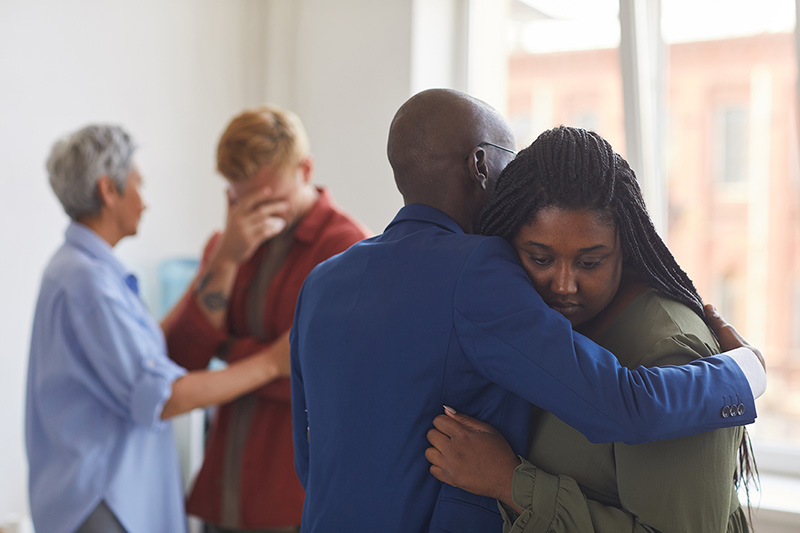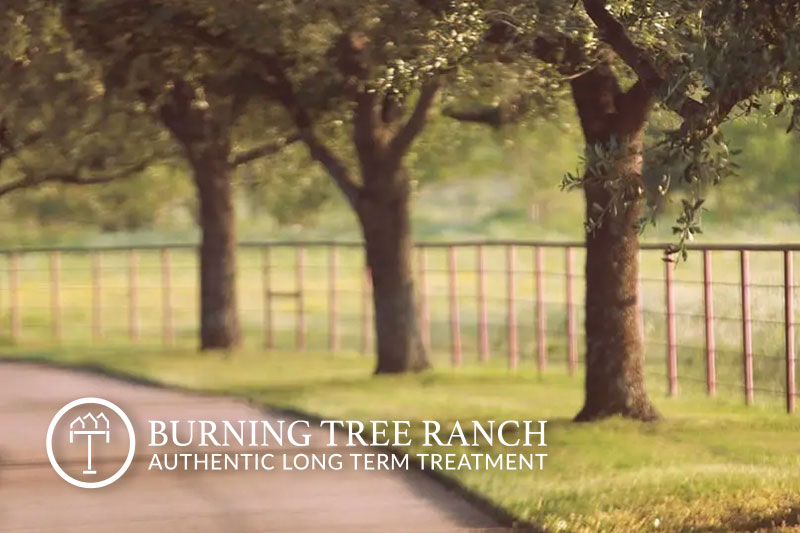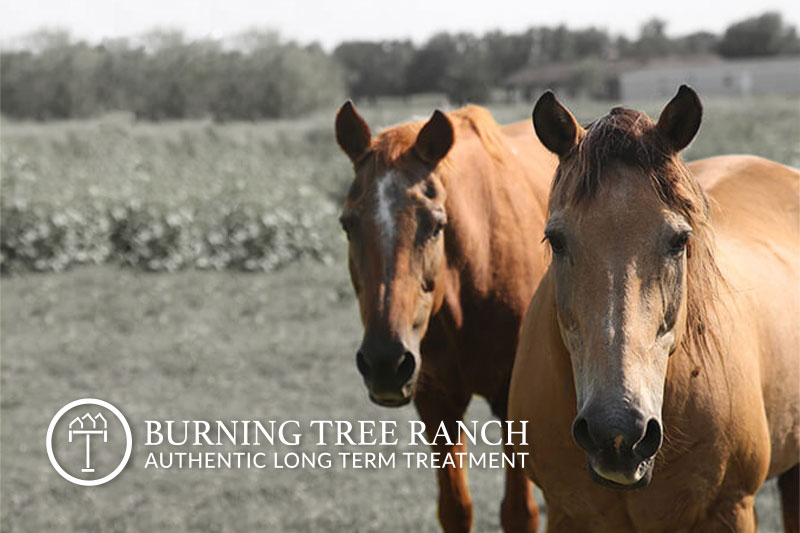While we try to give our friends in recovery support, we can’t control their behaviors. Relapse isn’t always a part of someone’s story, but it happens. It can be hard on us to hear that someone we know has relapsed and if they reach out for our help, we might not always know what to do. When someone in our program drinks or uses drugs again, they might ask us for guidance. Here are a few things to keep in mind when trying to help a fellow alcoholic or addict who has relapsed.

How to Approach Your Friend
Approaching a friend who has relapsed is an emotionally complex and sensitive situation that requires careful handling with respect and empathy. The first step is acknowledging the problem, not merely recognizing the signs of relapse but accepting the sobering reality of the situation. It’s crucial to understand that relapse doesn’t equate to failure or weakness on your friend’s part. On the contrary, addiction is a chronic disease, and relapse is often an integral part of recovery. Understanding and accepting this pave the way for effective support and assistance.
Next, choosing the right time and place to talk is critical. Discussing these sensitive issues when your friend is sober and in a quiet and non-threatening environment is vital. This conversation must be devoid of distractions and interruptions, so avoid crowded places or situations that might make your friend feel cornered or overwhelmed. This conversation may serve as a turning point for them; hence ensuring their comfort and sense of safety is of the utmost importance.
Finally, when you broach the subject with your friend, express your concern without judgment or blame. Use ‘I’ statements to communicate your feelings, such as “I’ve noticed you’ve been drinking more lately, and I’m concerned about you.” This approach is less likely to put them on the defensive compared to accusatory ‘you’ statements. Communicating that your concern stems from love, not judgment or anger, is fundamental. Ensure that your friend knows that their well-being is paramount to you. Be honest, gentle, understanding, and patient about your feelings.
Avoid using blaming or shaming language, as this may further alienate your friend rather than encourage them to share their feelings. Remember that your friend is probably grappling with a range of negative emotions already – including guilt, shame, fear, and frustration. During this challenging time, they need empathy and support, not criticism. Navigating this process can be daunting, but by acknowledging the problem, choosing the appropriate time and place to talk, and expressing concern without judgment or blame, you can take significant steps to help your friend who has relapsed.
Need help with a friend?
Contacting Burning Tree May Be a Good Place to Start:
- Options for Treatment Covered by Insurance
- High-Quality Individualized Care
- Simple and Stress-Free Admissions
- Because We Can Help
Take the First Step and We Will Cover the Rest

Dos: Actions That Can Positively Impact the Situation
Do Be Positive and Supportive
It’s okay to listen to your friend tell you what happened and how they’re feeling. However, try not to commiserate with them. Remain positive and show support by staying optimistic. It’s not easy to return to recovery after a relapse. Remind your friend that you are there for them and there are always meetings available. Their outlook may not be as positive, but you don’t have to feed into that. There are ways that one alcoholic or addict can understand and relate to another, that a person who doesn’t suffer from addiction can’t. Support your friend to work towards their recovery once again.
Do Make Suggestions and Encourage Them
We recover by taking suggestions from others. Take some of the suggestions that others have given you, and make them to your friend who has relapsed. Encourage them to attend a meeting, offer to accompany them. Try to help them get back on the path they were before they drank or used drugs again. If they were working with a sponsor, recommend that they reach out to that sponsor, or to find a new one as soon as possible. Suggest that they reconnect with their Higher Power however they are used to doing that, or at least to reach out to other people in their recovery community to create a support system. Encourage them to make a commitment at a meeting, or to do the same things that you know keep yourself and others sober.
Do Set Boundaries
It’s not your job to keep someone else sober. Don’t let them take advantage of your offer to help. What is most important is that you take care of yourself, and keep yourself sober first. You can’t help them if you’re not in a good place on your own. Make sure that you set healthy boundaries for yourself. They may be relying on you too heavily and their sobriety is not your responsibility. The most you can do for your friend is to tell them what you know works. Your job is not to be their sponsor or their Higher Power. You need to be a friend. Understand that they need to make the choice to return to recovery on their own. When you set boundaries, you are being fair to both yourself and them.
DO Be Patient and Understanding
When offering support to a friend who has undergone a relapse, manifesting patience and understanding is the most important actions you can implement. Dealing with relapse is a difficult process; it’s a trying time not just for your friend but also for you as their support system. It’s essential to remember that recovery is not a linear journey. There may be ups and downs, forward movements, and setbacks. Hence, patience is key.
Patience goes hand-in-hand with understanding. Attempt to understand the struggle your friend is going through. Make an effort to increase your understanding of addiction and the intricacies of the recovery process. This knowledge can help you better comprehend why your friend behaves in a certain way, why the relapse might have happened, and how you can effectively support them.
Understanding their situation also means empathizing with their feelings. Relapsing might cause your friend to experience various negative emotions such as guilt, shame, or frustration. They may blame themselves, feel overwhelmed, or be discouraged about their recovery process. It’s crucial to empathize with these feelings and reassure them that facing challenges on the road to recovery is normal.
Being patient and understanding does not imply ignoring harmful behavior or making excuses for your friend. It means providing a supportive presence, demonstrating kindness, providing reassurance that they are not alone during this challenging time. Remind them that a relapse is a setback, not a failure, and it does not define their journey to recovery.
Exhibiting patience and understanding can give your friend the strength they need to return to recovery. The road might be rocky and long, but your consistent and empathetic presence can make a significant difference in their journey toward sobriety.

Don'ts: Actions That May Hinder Recovery or Exacerbate the Problem
Don’t Enable Their Behavior
While being supportive and empathetic towards a friend who has relapsed is crucial, it’s equally important not to enable their behavior. Enabling occurs when you protect the person with addiction from the consequences of their actions. This might seem like you’re helping your friend, but in reality, you’re reinforcing their addictive behavior, making it easier for them to continue down this destructive path.
Enabling can take many forms. For instance, you might find yourself making excuses for their behavior, lying or covering up for them, or even providing them with money or resources that they use to sustain their addiction. All these actions prevent your friend from facing the full impact of their actions, allowing the cycle of addiction to persist.
It’s important to understand the difference between supporting and enabling. Supporting involves being there for your friend emotionally, encouraging them to seek help, and standing by them through the recovery process. On the other hand, enabling involves actions that directly or indirectly support their addiction.
So, if you want to truly help your friend, it’s essential to stop enabling behaviors. Give them the opportunity to experience the consequences of their addiction. This might be difficult to watch, but sometimes, hitting rock bottom is what finally motivates a person to seek help and commit to recovery.
At the same time, let your friend know that you’re there to support them and are willing to provide emotional support and assistance when they choose to resume their path to recovery. Remember, your role isn’t to save them from their addiction but to support them as they save themselves.
Don’t Force Them, This Is Their Battle
Just as in the last tip, remember that your friend’s recovery is their choice, not yours. You cannot force them to get better. Think back to your own recovery. If someone had tried to force you to attend meetings or get sober, how would you have responded? Even if we desperately wanted to get better, things aren’t always that simple. In the end, you had to commit to sobriety and participate in your own recovery willingly for it to be successful. The same goes for your friend. It’s not your mission to make them better. Don’t push them too hard to recover.
Don’t Make Excuses for Them
This can also mean don’t dismiss the problems your friend is having. Don’t try to explain away the relapse with excuses to relieve their guilt and pain. If they were already familiar with recovery, they know there is a solution to overcome the suffering. They are aware of how important it is to attend meetings, reach out to other addicts, and work the steps. Just as it’s not your job to get them sober, it’s also not your responsibility to solve their problems. If they are experiencing guilt and shame, they are more likely to willingly seek help and truly recover. Covering up their issues with excuses isn’t going to keep them sober, it will only make it more possible for them to continue drinking and using without consequences. Don’t dismiss their problems, just present to them what you know is a solution.
Don’t Discourage Them or Yourself
It’s okay to be sad or afraid for your friend. Try not to feel discouraged, or to discourage them if you don’t know what to do to help them. It’s okay to ask for help too. The best way to help them is to give them the best suggestions. If you are uncertain, ask your sponsor or someone who can make sure they are heading in the right direction. Additionally, if they aren’t responding to your suggestions, don’t take it personally. You did your part by being a good friend and telling them to continue trying to recover. Don’t let their choices after that hurt you. You can keep doing the right things for yourself and your sobriety. Just because your friend relapsed, doesn’t mean they won’t be successful in recovery. They may need to try again, but you should stay positive and keep moving forward, doing the next right thing.
Watching our friends struggle isn’t easy. Don’t give up on them, or on yourself. You can only do so much to help get them back on track towards recovery. Do the best you can, using the tools and suggestions that you know work for sobriety, but try not to take on their pain or excuse their guilt. If you do not feel equipped to help them, ask someone with more experience or knowledge to help guide both you and your friend so that your friend has the best chance of getting sober successfully.
Need help with a friend?
Helping a friend navigate the challenging terrain of relapse can be a daunting task, but with patience, understanding, and a commitment not to enable their addictive behavior, you can provide meaningful support. It’s essential to know that professional help, such as the relapse treatment available at Burning Tree Programs, is invaluable.
Burning Tree Programs offers a caring and well-organized setting where individuals grappling with addiction can discover the help they need. With a comprehensive approach encompassing therapy, education, and lifelong aftercare, Burning Tree Programs is equipped to guide your friend back on the path to recovery. Relapse doesn’t mean the end of the recovery journey but rather a hurdle to overcome. With your support and the right professional guidance, your friend can renew their commitment to sobriety.
Begin by contacting Burning Tree to learn more about how to help a friend or family member.





